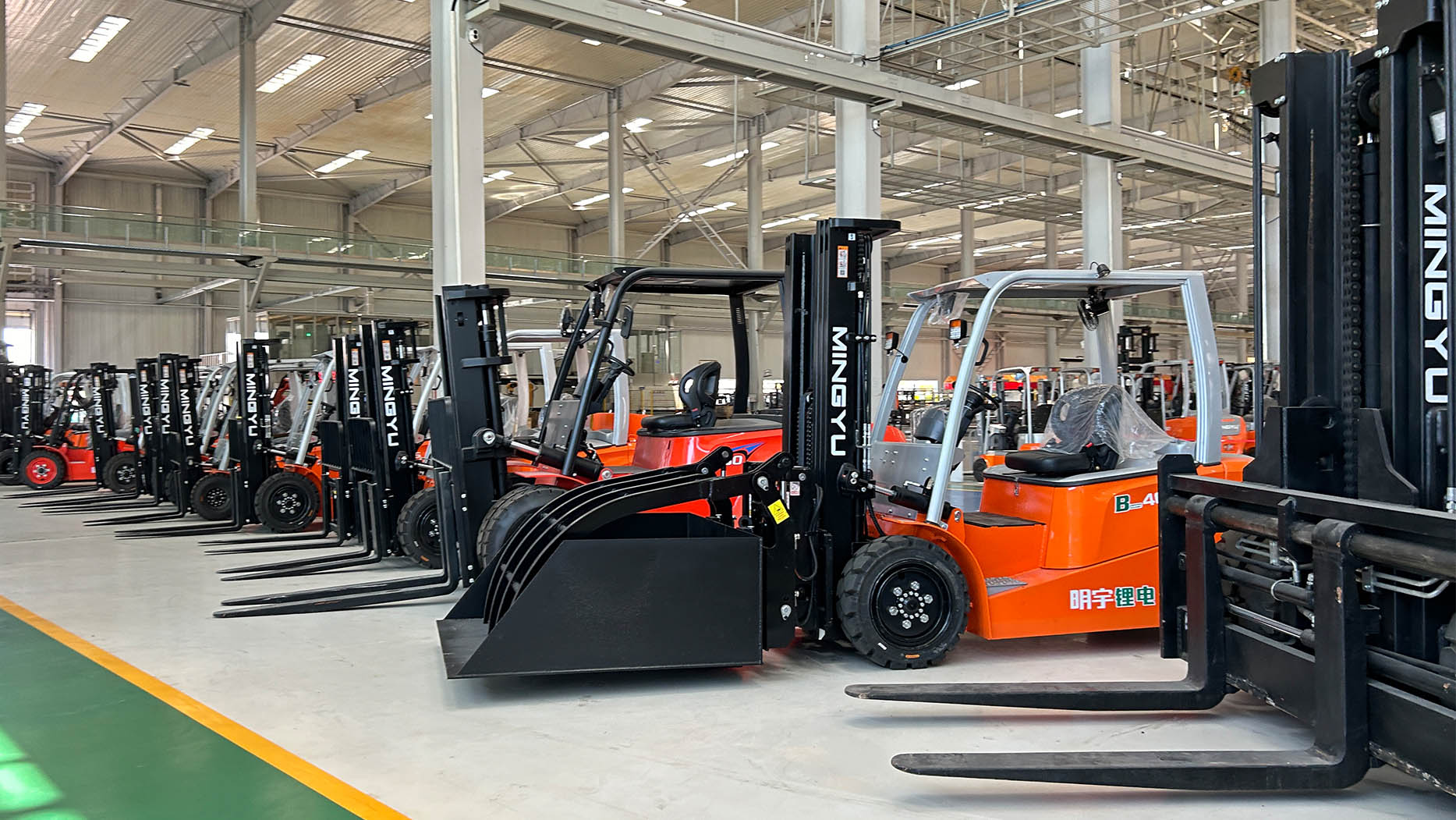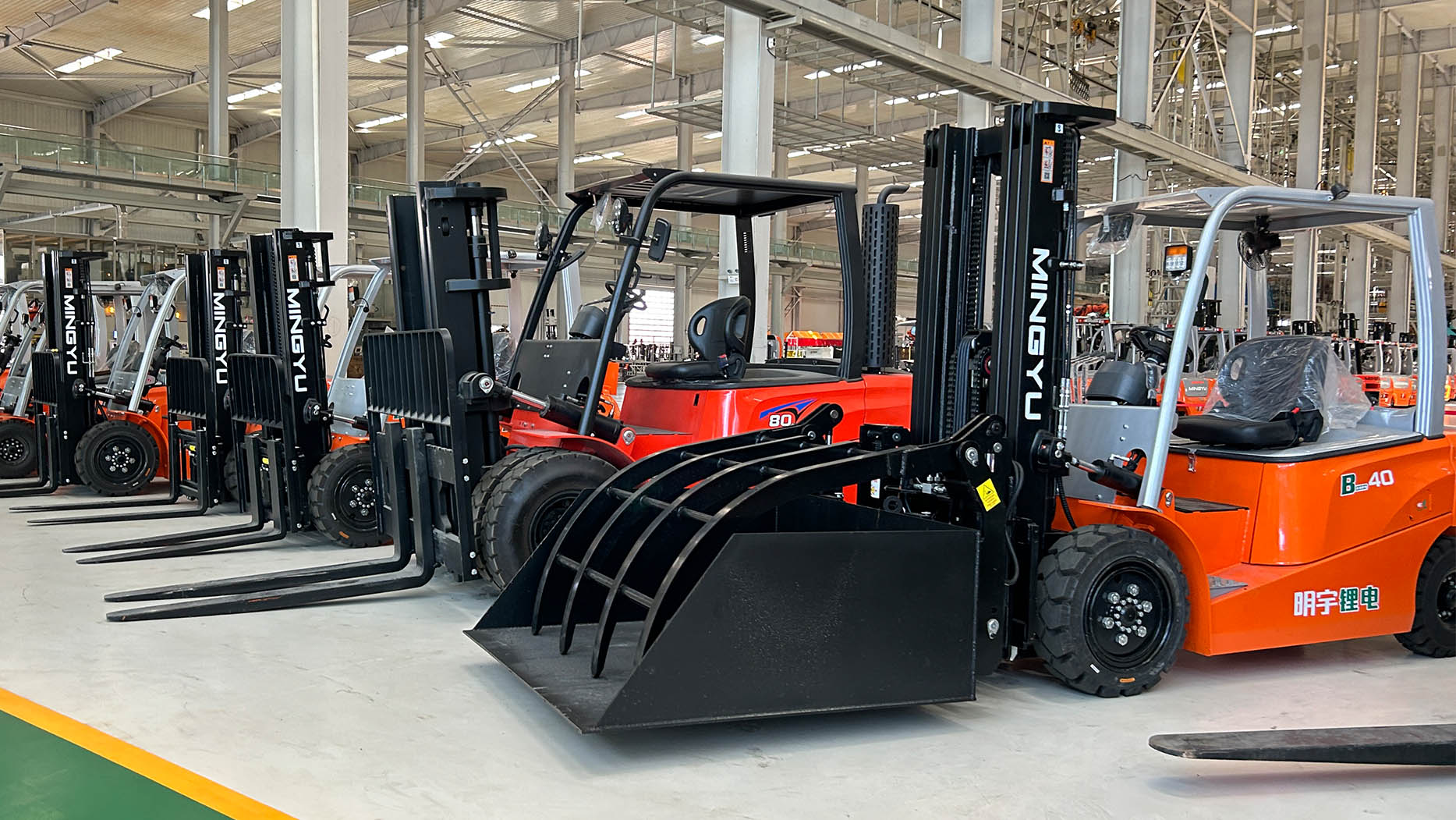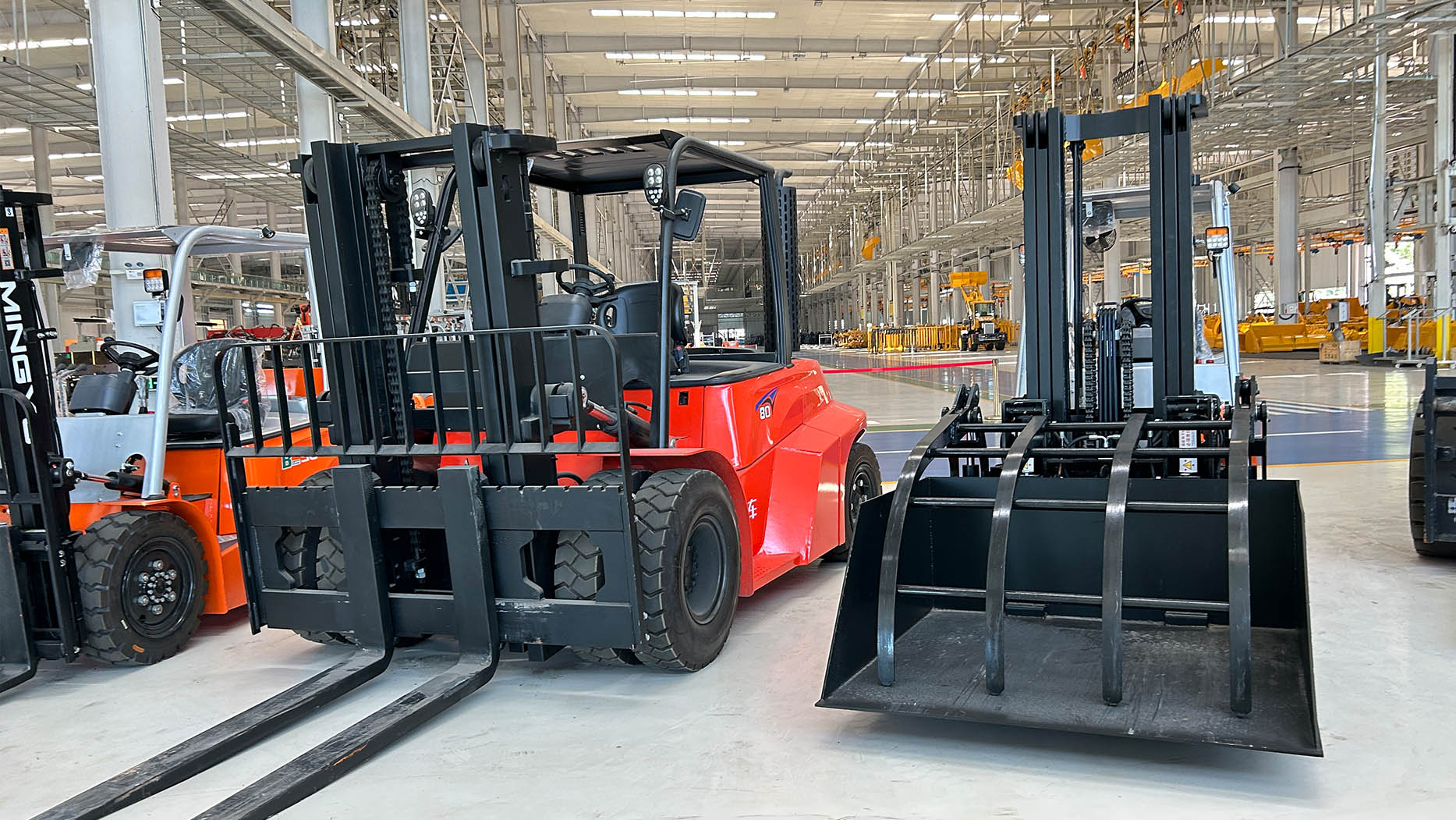The unequivocal answer is yes, highly so! The demand for qualified and certified forklift operators in the United States, and indeed globally, continues to be robust and is projected to grow steadily over the coming years. Far from being replaced by automation, the role of the forklift operator is evolving, becoming more integrated with smart logistics systems and remaining absolutely crucial for efficient material handling. If you're considering a career as a forklift operator, or if your business is struggling to find skilled talent, understanding the market trends is key.
This comprehensive guide will delve into the current job outlook for forklift operators, explore the industries driving this demand, discuss the impact of automation, and highlight why this career path offers stability and opportunities for growth.
The Current Job Outlook for Forklift Operators: A Growing Field
Official statistics and industry reports consistently point to a positive job outlook for forklift operators.
Projected Growth: The U.S. Bureau of Labor Statistics (BLS) projects a steady growth for "Industrial Truck and Tractor Operators" (the category that includes forklift operators). While specific percentages can vary slightly by reporting period, recent data (2022-2032 projections) indicates an expected growth of around 3.8%, translating to tens of thousands of new job openings over the decade. This growth is comparable to the average for all occupations.
High Volume of Jobs: Even without rapid percentage growth, the sheer volume of existing forklift operator positions means a consistent demand for new hires. As of recent estimates, there are hundreds of thousands of forklift operator jobs across the U.S., and a significant number of openings arise annually due to retirements and other workforce movements.
Essential Role: Forklift operators are fundamental to the flow of goods. As long as products need to be moved, stored, and distributed, skilled operators will be required.

Key Industries Driving the Demand
Several powerful economic trends and thriving industries are fueling the sustained demand for forklift operators:
E-commerce Boom: The explosive growth of online shopping has led to a massive expansion of warehouses, distribution centers, and fulfillment centers. Every item ordered online, from small packages to large appliances, typically passes through multiple facilities where forklifts are essential for unloading, storing, picking, and loading. Companies like Amazon, Walmart, Target, and countless e-commerce retailers are constantly seeking skilled operators.
Warehousing and Logistics: This is the largest employer of forklift operators. As global supply chains become more complex and goods move faster, the need for efficient warehouse management systems and the skilled personnel to operate them is paramount. This includes third-party logistics (3PL) providers, freight companies (FedEx, UPS), and cold storage facilities.
Manufacturing: From raw materials entering a factory to finished products being prepared for shipment, forklifts are critical in manufacturing plants. They move components between workstations, load and unload trucks, and manage inventory within production facilities across diverse sectors like automotive, electronics, food and beverage, and consumer goods.
Construction: On construction sites, forklifts (including rough terrain forklifts and telescopic handlers) are vital for moving heavy building materials, equipment, and supplies across uneven terrain, supporting everything from residential builds to large-scale infrastructure projects.
Retail and Wholesale Trade: Even traditional brick-and-mortar retailers and wholesale operations rely heavily on forklifts in their back rooms, stockyards, and distribution centers to manage incoming inventory and replenish sales floors.
Food and Beverage: This industry has specific demands, often requiring refrigerated warehouses and specialized forklifts to handle perishable goods. The growth in online grocery shopping and meal kit deliveries further boosts demand.
Recycling and Waste Management: Forklifts are used to sort, move, and load various recyclable materials and waste products onto processing equipment or transport vehicles.
Ports and Docks: Essential for loading and unloading cargo from ships and trains, ensuring efficient throughput at major shipping hubs.
Agriculture: Used for moving bulk agricultural products, feed, and supplies on farms and in processing facilities.
 The Impact of Automation: Evolution, Not Elimination
The Impact of Automation: Evolution, Not Elimination
A common concern in many industries is the rise of automation and robotics. While automation is indeed transforming warehouses and logistics, it's generally seen as evolving the role of the forklift operator rather than eliminating it entirely.
Automated Guided Vehicles (AGVs) and Autonomous Forklifts: These technologies are certainly being deployed in high-volume, repetitive tasks within some warehouses. They excel at predictable movements and can operate 24/7.
Human-Machine Collaboration: The reality, for the foreseeable future, is a hybrid approach. Human forklift operators possess critical skills that automation currently cannot fully replicate:
Problem-Solving: Handling unexpected obstructions, unique loads, or unpredictable environments.
Versatility: Adapting to diverse tasks, various load types, and changing conditions.
Troubleshooting: Diagnosing and resolving issues with equipment or loads.
Last-Mile Delivery: Moving goods into and out of trailers, specific rack slots, or dealing with complex loading/unloading scenarios that require human judgment.
Supervision and Maintenance: Operators will increasingly be responsible for monitoring, programming, and maintaining automated systems, requiring a new set of technical skills.
Increased Overall Activity: The sheer volume of goods moving through the supply chain due to e-commerce often means that even with automation, the demand for human operators remains strong to manage the increased throughput and handle tasks that automated systems cannot.
Therefore, rather than being replaced, forklift operators are increasingly becoming skilled material handling specialists who work alongside and manage advanced technologies.
What Makes a Forklift Operator in Demand?
Beyond the general market trends, specific qualities and qualifications make an individual a highly sought-after forklift operator:

Certification and Training: Holding a valid forklift operator certification (such as OSHA-compliant training in the US) is non-negotiable. It demonstrates proficiency and adherence to safety standards. Specialized certifications for different forklift types (e.g., reach trucks, order pickers, rough terrain forklifts) further enhance marketability.
Safety Consciousness: A strong commitment to workplace safety is paramount. Employers prioritize operators who adhere strictly to safety protocols, conduct pre-shift inspections, and maintain a safe working environment.
Experience: While entry-level positions exist, experienced operators who can quickly and efficiently handle various loads in diverse environments are highly valued.
Efficiency and Productivity: The ability to move materials quickly, accurately, and without damage directly impacts a company's bottom line.
Attention to Detail: Ensuring loads are correctly identified, stored in the right locations, and handled without errors is crucial for inventory management.
Physical Stamina and Dexterity: Operating a forklift, especially for long shifts, requires physical stamina, good hand-eye coordination, and spatial awareness.
Teamwork and Communication: Forklift operators often work as part of a larger logistics or production team, requiring good communication skills.
Adaptability to Technology: As warehouses become more automated, operators who are comfortable with technology, digital inventory systems, and potentially basic troubleshooting of automated equipment will be in higher demand.
Career Path and Opportunities for Growth
A career as a forklift operator often serves as an excellent entry point into the broader logistics and supply chain industry. With experience and additional training, operators can advance to roles such as:
Shipping/Receiving Supervisor
Warehouse Lead/Supervisor
Inventory Control Specialist
Logistics Coordinator
Warehouse Manager
Distribution Manager
Many of these roles offer significantly higher earning potential, demonstrating a clear upward trajectory for ambitious individuals in the field.
Conclusion: A Stable and Evolving Career
The question "Are forklift operators in demand?" can be confidently answered with a resounding yes. Driven by the relentless growth of e-commerce, the expansion of global supply chains, and the fundamental need for efficient material handling, the role of the forklift operator remains critical. While automation introduces new dimensions to the job, it primarily redefines the skill set, emphasizing human oversight, problem-solving, and adaptability, rather than rendering the profession obsolete. For individuals seeking a stable career with clear opportunities for advancement in a dynamic industry, becoming a certified forklift operator is a smart and timely choice. For businesses, investing in proper training and retaining skilled operators is essential for operational success in an increasingly competitive landscape.
Post time:Jun.06.2025
